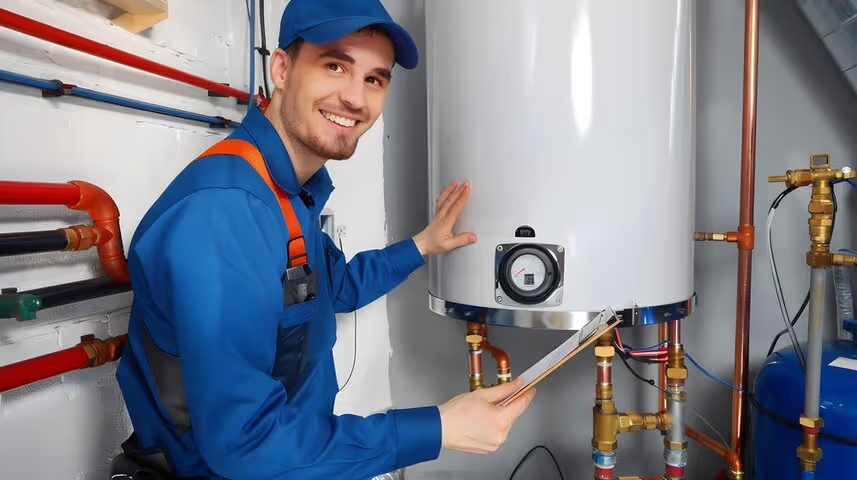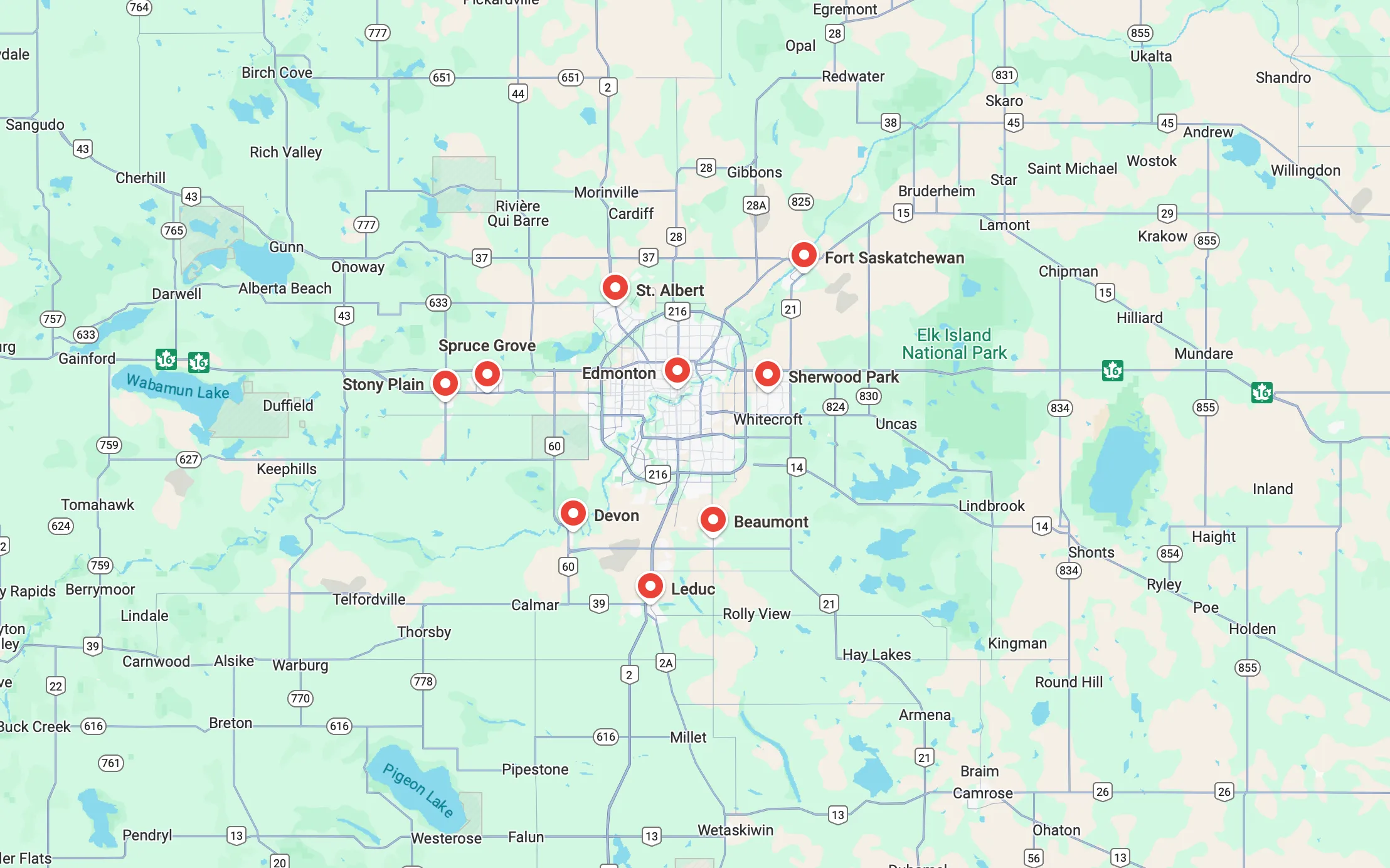No Hot Water in Spruce Grove, AB
Spruce Grove homeowners experience no hot water problems due to issues from pilot light failures and thermostat faults to gas supply, sediment buildup, leaks, or tankless system faults. A licensed technician follows a step-by-step diagnostic, including safety checks, controls, gas pressure, and burner assessment, before advising repair or replacement. Emergency and same-day options are available, with clear cost estimates. Ongoing maintenance-annual inspections, flushing, anode care, and water treatment-helps prevent recurrence and extend system life; FAQs address timing and tank choices.

No Hot Water in Spruce Grove, AB
Losing hot water is one of the most disruptive home issues, especially during Spruce Grove winters when cold temperatures make reliable hot water essential. This page explains the most common causes of no hot water in Spruce Grove homes, what a qualified technician will check, safe immediate steps you can take, when repair makes sense versus replacement, emergency and same-day service options, typical response expectations, maintenance to prevent recurrence, and frequently asked questions.
Common causes of no hot water in Spruce Grove
- Pilot or ignition failures (gas water heaters): Pilot lights or electronic ignitors can fail, preventing the burner from firing. Cold starts and cycling in winter can aggravate these components.
- Thermostat or heating element faults (electric water heaters): Burned-out elements or failed thermostats stop water from heating properly.
- Gas supply issues: Intermittent gas supply, a closed gas valve, or regulator problems can prevent combustion. Municipal gas interruptions or downstream regulator issues are possible causes.
- Sediment buildup and reduced efficiency: Mineral deposits common in Alberta water can insulate the heating surface, reducing heat transfer and causing limited or no hot water.
- Leaks and pressure problems: Leaks at the tank, shutoff valves, or dip tube failures can reduce hot water delivery. Low incoming water pressure or partially closed valves also affect output.
- Tankless system faults: For tankless units, blockage, ignition failure, or scale buildup on heat exchangers prevents the unit from firing on demand.
- Electrical issues: Tripped breakers, blown fuses, or faulty wiring will cut power to electric heaters and tankless controls.
What a technician will check during diagnosis
A professional inspection in Spruce Grove typically follows a logical sequence to identify the root cause quickly and safely:
- Visual safety check: Look for gas smell, water leaks, corrosion, or scorch marks.
- Power and controls: Verify breakers, fuses, and control settings for electric units; check pilot status or electronic ignition on gas units.
- Gas supply and pressure: Confirm the gas valve is open and test for proper pressure to the appliance.
- Thermostat and elements: Test thermostats and heating elements for continuity and proper operation.
- Burner and venting: Inspect burner ignition, flame pattern, and flue/venting for blockages or backdrafting. Cold Alberta air can affect venting performance.
- Tank internals: Check for sediment accumulation, anode rod condition, and dip tube integrity.
- Flow and sensors: For tankless units, test flow sensors, burners, and descaling needs.
- Operational test: Run the system under load to confirm repairs or to identify intermittent faults.
Immediate safety steps and temporary fixes
If you have no hot water, prioritize safety first:
- If you smell gas, leave the house, ventilate from a safe distance, and contact the appropriate emergency gas services. Do not operate electrical switches.
- Turn off the water heater power at the breaker if you suspect an electrical fault.
- Check simple items you can do safely: confirm the gas valve is open (only if no gas smell), ensure the breaker is not tripped, and verify the thermostat is set to the correct temperature.
- Some gas units have manufacturer instructions for relighting a pilot; follow the unit’s label only if you are comfortable and it is safe. When in doubt, wait for a technician.
- Flushing a small amount of hot water from a faucet can confirm whether any hot water is available, but avoid attempts at internal repairs.
Temporary fixes are limited and should be treated as short-term solutions. For example, resetting a tripped breaker or relighting a pilot (when safe) may restore service until a full diagnosis is completed.
Repair versus replacement: how to decide
Factors that influence whether to repair or replace a water heater include the appliance age, type, extent of damage, and energy efficiency needs:
- Repair is often appropriate when: the unit is relatively new, the fault is a single component (ignitor, element, thermostat, valve), or when the tank is structurally sound. Minor part replacements and cleaning (flushing) can restore reliable hot water.
- Replacement is recommended when: the tank is leaking, the unit is older than its expected service life (typical lifespans vary by type), corrosion is extensive, or repairs would be frequent and costly. Upgrading to a high-efficiency model or switching fuel types (electric to gas or to tankless) may also be considered based on long-term savings and household hot water needs.
- Tankless systems: Often repairable, but persistent scale damage to the heat exchanger or repeated failures may justify replacement, especially in hard-water areas without a softener.
Emergency and same-day service options in Spruce Grove
No hot water can be urgent, particularly in winter. Many service providers offer prioritized same-day or emergency responses for loss of hot water. Emergency response usually includes safety assessment, temporary measures to restore service, and a full diagnostic to schedule follow-up repairs or replacement. In Spruce Grove, plan for variable response windows depending on call volume, weather, and whether the issue presents an immediate safety risk.
Typical response expectations and cost factors
Response times often range from a same-day visit to next-business-day scheduling, with faster dispatch for emergency conditions. Cost depends on fuel type, the specific failed component, accessibility, and whether replacement is required. Common cost drivers include burner or element replacement, gas valve or control board repairs, descaling or flush services, and tank replacement. Homeowners should expect a technician to provide a clear estimate after diagnosis.
Maintenance tips to prevent no-hot-water issues
- Annual inspection: Schedule a professional check before winter to test burners, ignitors, thermostats, and venting.
- Flush the tank yearly: Removes sediment to maintain efficiency and extend tank life, especially important in Alberta’s water conditions.
- Inspect the anode rod: Replace when heavily corroded to prevent tank failure.
- Install water treatment when needed: A water softener or filtration can reduce mineral scale in hard-water areas.
- Adjust thermostat sensibly: Keep the tank set to a safe, efficient temperature and avoid frequent large changes.
- Protect external plumbing: Insulate exposed pipes and check valves prior to freeze season.
FAQs
- Q: Is no hot water considered an emergency?
A: It can be urgent, especially in freezing weather or when there is a gas smell or active leak. Otherwise it is high priority but may be handled same day. - Q: Can I relight my pilot light myself?
A: Only follow the appliance’s label instructions and if you do not smell gas. If unsure, wait for a technician. - Q: How long will a repair take?
A: Simple part swaps can be completed the same visit; more complex diagnostics, parts ordering, or replacements may take longer. - Q: Tankless or tanked which is better for Spruce Grove?
A: Tankless offers on-demand hot water and energy savings but requires descaling in hard-water conditions. Tanks are simpler and provide stored hot water for peak use. - Q: How often should I flush my tank?
A: Annually for most homes; more often if water quality is poor. - Q: When should I replace the water heater?
A: Consider replacement if the unit is near end of its expected life, has a leak, or requires repeated costly repairs.
This information is intended to help Spruce Grove homeowners understand causes, safety, diagnostics, and prevention for no hot water events. A qualified technician will provide a confident diagnosis and clear options tailored to your home’s system and local conditions.
Customer Testimonials
Hear from satisfied customers who trust us for reliable HVAC and plumbing service across Edmonton
















Customer Testimonials
Hear from satisfied customers who trust us for reliable HVAC and plumbing service across Wichita.
Service Areas


